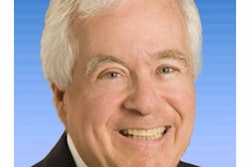Probably one of the most difficult things for a dentist to do is to prepare himself or herself and the dental practice for a sale. There are many reasons for this, one of which is the financial piece of the transaction. Another part is the emotional upheaval that is caused but may not be thought about when the decision is made to sell.
Leaving the dental practice and the personnel has a huge impact on the dentist on a personal level. Not seeing the patients with whom the dentist has gotten to know and enjoy impacts the dentist emotionally.
 Bruce Bryen, CPA, CVA.
Bruce Bryen, CPA, CVA.
A lot of advisers to the dentist and the dentist himself or herself at first think of the financial impact that the sale will have. This is especially true if the dentist has not planned well for retirement by initiating items such as employer-qualified deferred compensation plans, fringe benefit packages, and other items that lessened the tax burden for the employees as well as himself or herself.
By arranging long-term planning with a qualified adviser, the dentist and staff could have saved and now hold thousands of dollars. This would allow a much smoother and financially successful retirement for all involved with the practice before a sale. It would also lessen the emotional impact, since there would be opportunities to travel, relax, and do other things that were not possible because of a work schedule.
What is an unconventional approach to a dental practice sale that allows the dentist to get the most out of his or her continuous years of hard work?
Many advisers on each side of the dental sale look at the buyer and seller and know before any negotiating occurs that the seller wants capital gains treatment. This affects the buyer negatively, because as the seller gets the lowest tax rate available, the buyer must write off the purchase price over 15 years (or some other time frame) that is not beneficial to his or her tax treatment compared to the seller's tax treatment. The seller of the dental practice receives the most helpful tax benefits based on a capital gains effect.
When state taxes are considered, there may be little or no tax relief for either side of the transaction. There are, however, approaches to a dental practice transition where both sides can achieve a significant tax benefit.
In tax planning, the basic concept is that if one side of a transaction has an expense item, the other side must have an income item. In a practice sale, the question is how to complete a sale so that the income item does not get reported immediately.
In a sale, the expense item is reported right away and deducted on the buyer's tax return as the payment is made. How does the seller defer the reporting of the income for as long as possible but also as safely as possible? Most financial advisers are familiar with installment sales and the deferral of the income that is part of the formula to the installment sale. The downside to this type of transaction is that even though it may defer the tax until the principal is collected, the degree of safety is limited because the receivable owed to the seller is secured on a limited basis.
Most advisers understand the use of retirement plans while the dental practice is operating and producing income that can be deferred until that money is withdrawn. When the funds are withdrawn, income tax is due typically to the IRS as well as to the state taxing authority. It is rare that a financial adviser can put the two together so that the write-off of the payment to an employer-qualified deferred compensation plan can be made as part of the retirement that is in place but has not yet occurred.
So, how would that happen, and what would be the outcome of the above plan?
The payment to a qualified employer-sponsored retirement plan would be the same in retirement as it was during the employment of the dentist and while the dental practice was in operation. It is a deductible expense to the paying entity who now would employ the dentist who sold his or her practice.
There would, however, be many issues to resolve before this transaction would take place. The buyer and the seller would have to agree on a price for the dental practice that is being sold. The selling dentist would be employed by the operating company of the new dental owner. Based on the age of the selling dentist, large contributions can be made to his or her retirement plan that would be paid over the years. This would be similar to the type of transaction based on the previously described installment sale.
However, there is a major difference that separates the installment sale from this type of transaction in advisers’ minds and legally. Once the funds are in the retirement plan and the obligation for all the payments is agreed upon by the employer and the selling dentist, these funds are safe. They are protected from creditors, and the income earned is deferred until they are withdrawn. The taxes are deferred as well until the income is withdrawn, at which time the taxes are due, but only on the funds withdrawn and not the full balance in the account.
For those reading and analyzing this article, if your certified public accountant (CPA) does not understand their power, a new CPA should be on the horizon. This method of sale can save thousands of dollars over its term and even after the payments to the retirement plan have been completed. The balance in the account is not taxable until it is withdrawn.
Bruce Bryen is a certified public accountant with over 45 years of experience. He specializes in providing litigation support services to dentists, with valuation and expert witness testimony in matrimonial and partnership dispute cases. Bryen assists dentists with financial decisions about their practice, practice sales, evaluating whether to join a dental service organization, practice evaluation during divorce proceedings, and questions about the future or financial health of dental practices. He can be reached at [email protected].
The comments and observations expressed herein do not necessarily reflect the opinions of DrBicuspid.com, nor should they be construed as an endorsement or admonishment of any particular idea, vendor, or organization.



















